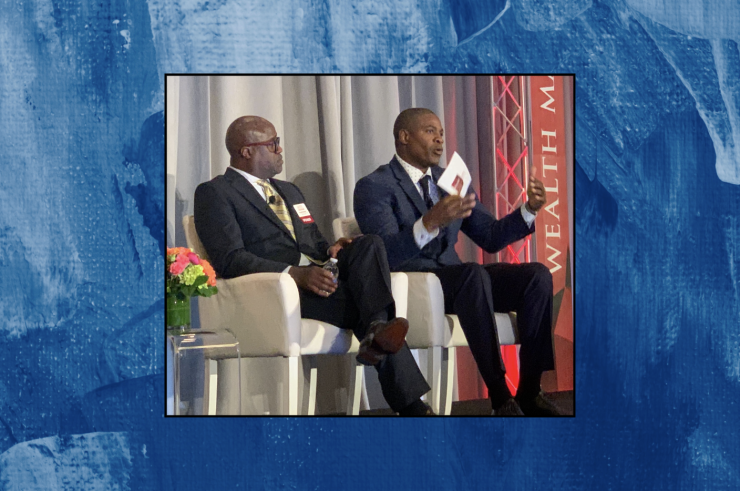In the subset of financial advisors who cater to professional athletes, there's a growing demand that advisors want more female athlete clients — and athletes want more female advisors.
"You see in the NBA, a lot of our superstar NBA players have women managers. And we're getting a lot of requests from our athletes and entertainers for women advisors," said former NFL defensive end
Ogunleye was speaking alongside Dwyatt McClain, head of retirement income distribution at Fidelity Investments, about advisors catering to the sports and entertainment industry during
READ MORE:
Ogunleye was responding to a question from the audience about how advisors can capture the rise of
"The players feel like men egos get in the way of giving them sound advice. And I think women have a great balance, especially in the Black community, of being able to be firm but nurturing at the same time," he said. "For us in the sports industry, it actually will do better for us if there's more women advisors at the forefront because that's what these athletes are looking for. And women are able to advocate for both women and men."
READ MORE:
Female advisors are on the rise, with roughly 32% of personal financial advisors accounted for in 2023 as women, according to the U.S. Census Bureau. However, only 6.4% of employed personal financial advisors identified as Black or African American.
At the same time, the competition has heated up for firms expanding their businesses to cater to athletes and even attracting
Earlier this month, Shreveport, Louisiana-based
Part of the attraction is that athletes come into mass amounts of money faster than most Americans and typically at an earlier age.
"The biggest thing guys need is understanding finances early on and being able to come up with a game plan for their money," said
Young athletes are also signing contracts at far larger sums of money, Ogunleye said, which will drive a need for more advisor family offices.
There's going to be "a ton of future billionaires that will not even be the star players … but these guys would have enough money to be the next Procter & Gamble," he said. "So for us, you're going to see an influx in family offices. That's going to be the next big thing."
Many of the rising professional athletes are also young or college students, which means they tend to lack the financial education needed, especially for someone quickly coming into great wealth.
READ MORE:
"These student athletes, all of a sudden, have signed multimillion-dollar contracts. And you've have people around them all, one, looking for a handout. Two, giving bad advice. They're not getting what they need," said McClain, who also leads Fidelity's Registered Investment Advisor team for the tax-exempt market. "Not only just
McClain said Fidelity has been focusing on financial education programs at universities in teaching fundamentals of investing, taxes and budgeting.
"These are the type of things that we do, and I think it's needed even more now than ever," he said.
Both McClain and Ogunleye also emphasized the importance of advisors doing better at building trust with their clients. This is especially the case when dealing with professional athletes and ensuring they will choose sound advice over making financial missteps that end up in media headlines.
"I tell our advisors at UBS, if you're not invited to — especially in the sports space — if you're not invited to your clients getting married, or there's a child being born and you're not included in those conversations, you're not in their trusted network," Ogunleye said. "There's a small group of people that athletes trust, and the rest are transactions."






